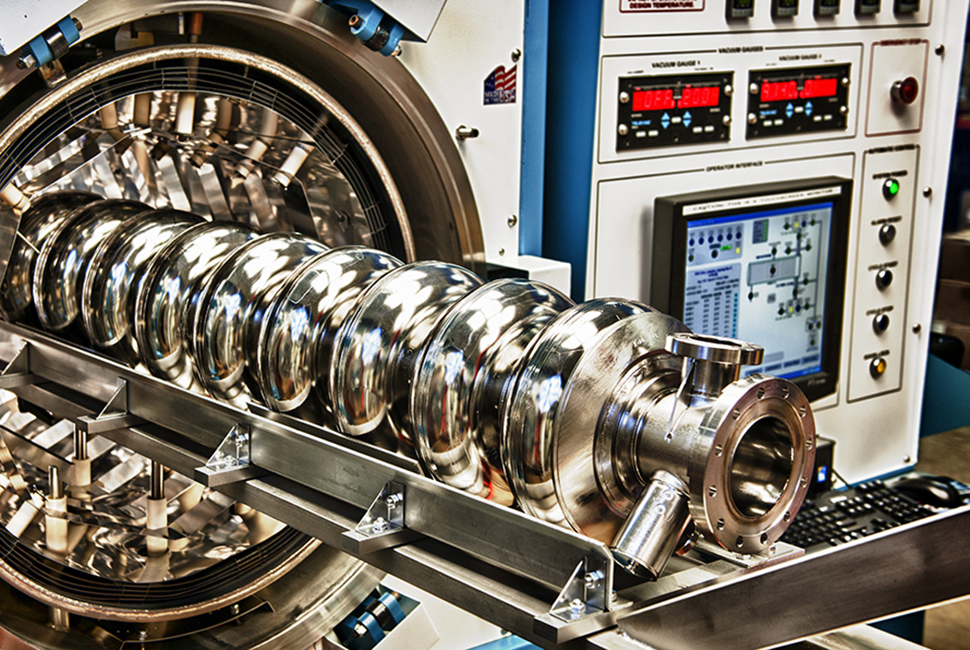Quantum physics — the study of energy and matter at the most fundamental level — does not only explain the atomic and subatomic building blocks of our universe. Recent advances in quantum science and engineering also promise a range of technological applications and societal benefits right here on Earth. Progress in this exciting direction requires a national, collaborative and multidisciplinary effort as well as a more diversified workforce.
Northwestern’s Jens Koch recently traveled to Washington, D.C., to meet with some of the foremost scientists and engineers working in quantum information science (QIS) and technology. He attended the White House National Quantum Initiative Centers Summit, representing the Superconducting Quantum Materials and Systems Center (SQMS), of which he is deputy director. The center is one of many important efforts at the University that harness Northwestern’s cross-disciplinary strengths in quantum research.
“We dedicated a lot of time to discussing the necessity of developing a diverse, equitable and inclusive workforce, in addition to talking about science,” said Koch, an expert in quantum electronics and superconducting quantum circuits. He is a professor of physics and astronomy in the Weinberg College of Arts and Sciences.

“It’s important to celebrate our scientific successes, but we also need to look ahead to what’s next and how we can be more inclusive and inspire young people to be quantum scientists and engineers,” Koch said. “That involves sharing best practices as well as listening to the students themselves. We want them to know that quantum physics is an exciting field with numerous career paths, including in the tech industry, not just academia.”
The SQMS Center, led by Fermilab, is one of only five Department of Energy-funded National Quantum Initiative centers, part of an effort to develop and deploy the world’s most powerful quantum computers and sensors as well as train a skilled workforce. Anna Grassellino, a senior scientist at Fermilab and an adjunct professor at Northwestern, is center director. Northwestern is the largest academic collaborator to the research initiative, and Rigetti Computing is the center’s main industry partner.
Koch joined representatives from 12 other national research centers and institutes on Dec. 2 for the half-day summit hosted by the White House Office of Science and Technology Policy (OSTP). Accompanying Koch was Sam Posen, physics and sensing focus area leader of the SQMS Center and a scientist at Fermilab.
Each center provided an overview of its mission and work, including approaches to education and outreach, followed by two roundtable discussions. During the first, the researchers exchanged views on the most pressing scientific and workforce challenges affecting QIS. The field’s impacts and benefits as well as its enabling technologies for society were topics of the second roundtable.
In his presentation, Koch noted that Fermilab, the nation's flagship national lab for particle physics, is now leveraging resources developed originally for particle and accelerator physics and applying them to quantum science and engineering.
Koch said the mission of the SQMS Center is twofold: to construct and deploy advanced quantum systems for quantum computing and quantum sensing and to serve the growing quantum ecosystem in the U.S. by creating characterization and foundry capabilities, providing quantum testbeds and inspiring, educating and training a diverse U.S. quantum workforce.
“If we want quantum science and technology to thrive in the U.S., we have the duty and privilege to grow a U.S. quantum workforce that is creative, diverse, smart and ready for the future,” Koch said at the summit. “This is an integral part of our mission, both individually and jointly with other centers.”
Alondra Nelson, deputy assistant to President Joe Biden and deputy director for science and society at the OSTP, welcomed the attendees with opening remarks.
“From magnetic resonance imaging that improves health and saves lives to the global positioning systems that have revolutionized how we move in the world, quantum science and technology has already yielded major benefits to society,” Nelson said. “An inclusive approach to the development of this field, including broadening access to educational and employment opportunities, will ensure that all of society equitably shares in its benefits, especially those that have been historically underrepresented in STEM.”
Charles Tahan, assistant director for QIS at the OSTP and director of the National Quantum Coordination Office, also contributed remarks, at both the summit’s opening and closing.
The SQMS Center, established in 2020, unites 24 institutions from across the U.S. and engages more than 400 scientists, engineers and staff. That number includes more than 100 students and postdoctoral fellows performing research at the forefront of quantum science and technology. The center’s total funding is $115 million over five years.
The SQMS Center is Northwestern’s second major research partnership with Fermilab; an earlier collaboration — the Center for Applied Physics and Superconducting Technologies (CAPST) — helped pave the way for the current work. CAPST is one of 35 University-wide Research Institutes and Centers (URICs) that bring together talent from across Northwestern. The Initiative at Northwestern for Quantum Information Research and Engineering (INQUIRE) is another URIC that focuses on quantum research.


